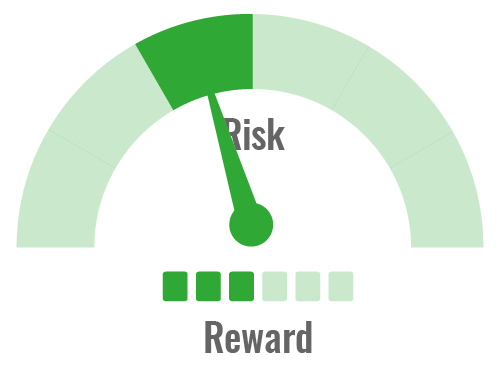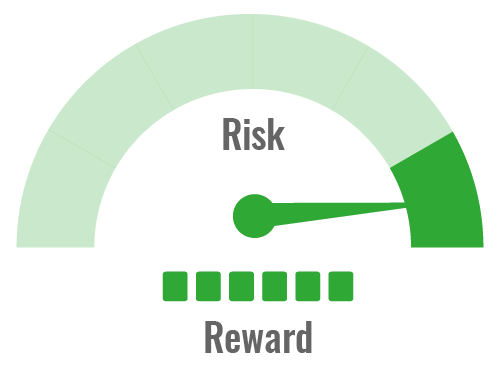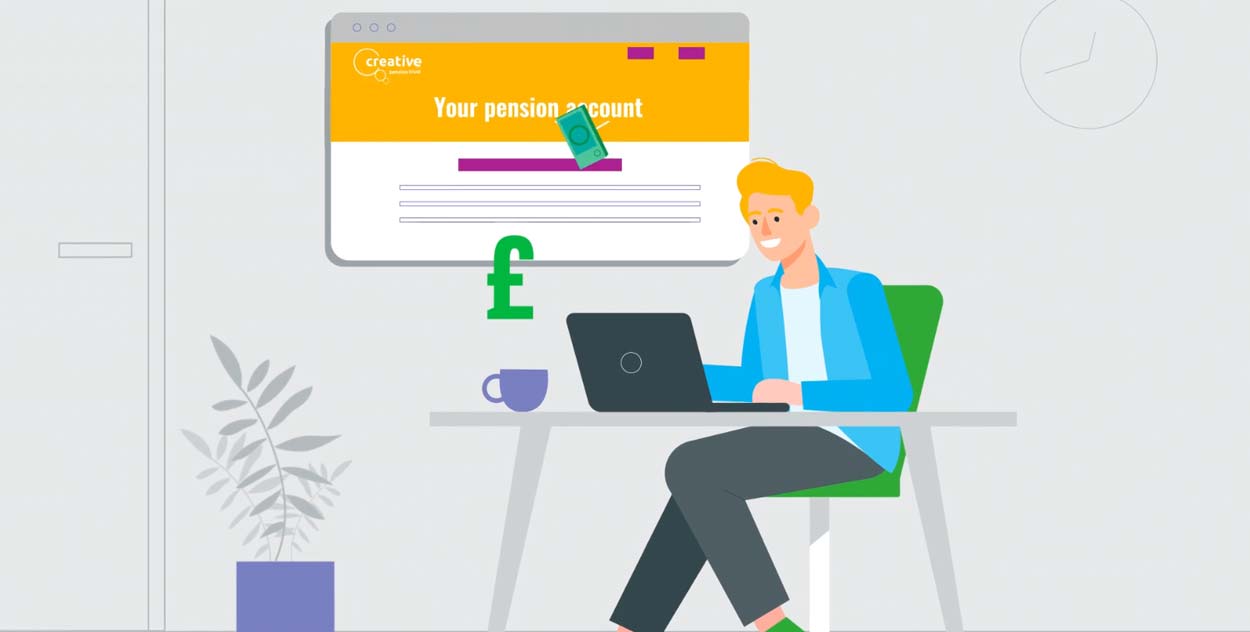But because your pension is a very effective way to save for the future, it can become your biggest investment too.
For many people, a workplace pension may be their first investment.
What it means to invest your money
If investing is new to you, it’s worth taking time to understand what investing is, what happens to your money and how it can help you achieve greater financial returns, giving you a bigger nest egg when you retire.
It is important to know:
- What investing means – Investments are made to outperform inflation and preserve buying power
- What kinds of investments are available – There are four main types of investments available which are: Cash, Government Bonds, Corporate Bonds, and Stocks and Shares.
- What happens to your invested money – Creative Pension Trust partners with a range of leading, global investment fund managers to buy into their funds.
Your guide to the information on this page
More information
Want to know how we invest your money when you pay in? Watch this video to learn more about our Default Investment Strategy, which we will use to invest your money unless you decide to make your own choice of investment fund:
Investing basics
Getting to know the basics of investing can help you make better, more informed decisions about your financial future and goals. This is especially true if your pension is your first investment or you have chosen to manage your investments yourself.
What investing means
Gaining a clear understanding of what investing means is the first step toward making the right decisions to support your goals.
The difference between cash savings and investments
Unlike saving cash into a bank or building society savings account, investments work differently:
Savings
Better for short term needs -usually less than 5 years
Your money is normally deposited into a cash account that earns interest. You can normally access your cash easily when you need it but there are different rules for different kinds of savings accounts.
Unfortunately, interest rates are historically low and may not provide a great enough return to match inflation. This can make them unsuitable for longer-term needs
Investments
Better for medium-to-long-term needs -usually 5 years and upwards
Instead of being deposited, your cash is used to buy investments that are expected to be worth more in the future or provide a financial return over time.
In the future, when you need to draw your money, your investments will be sold for a cash price. On average, history shows that good investments can outperform inflation, preserving and improving the buying power of your money for when you need it.
What is the goal of investing?
The goal of investing your pension contributions is to grow your pension nest egg so that, when it comes to your retirement:
- the value of your savings is greater than the amount you have paid in thanks to investment performance, and;
- the value of your savings has kept pace with, or outpaced, inflation, preserving the buying power of your money
Why do pensions use investments?
Generally speaking, investments tend to perform better than other alternatives like cash savings over the longer-term. This makes them suitable for your workplace pension, which is there to help you save for retirement throughout your working life.
Although investments can go down as well as up, the long-term nature of your pension makes investments a sensible choice as you have time for them to grow and have long enough to ride out any bumps as and when investment markets go down, which happens from time to time.
What is inflation and why is it important?
Inflation affects the buying power of your money. Because, on average, prices tend to go up over time (this is known as the rate of inflation), £10 may not go as far to help you pay your bills in the future as it does today.
Because of this, it’s important that your nest egg grows faster than the rate of inflation and so we invest your money in a range of ways to achieve this.
What kind of investments are there?
There are many different kinds of investment ranging from commonplace types that you may have already heard of to other more specialist kinds that may be more limited in their appeal.
For example, most people are more likely to invest their money in stocks and shares than in specialist investments with more limited appeal, such as classic cars, stamps or rare wines. When it comes to investing your money with Creative Pension Trust, your money will normally buy into the more commonplace kinds of investments shown below:

Cash
Typically, deposited cash is rewarded by the deposit holder (like a bank or building society) in the form of interest. However, interest rates are historically very low, offering very little financial reward.
Holding cash is considered very low risk and is typically done to preserve the value of your pension as you near retirement. That said, if the rate of interest paid is lower than the rate of inflation, the value of your money can be eroded over time.

Government Bonds
(Also called Gilts for the UK Government)
Buying a government bond is like lending money to a country by way of a loan in order for it to finance its government’s plans, such as developing infrastructure, in exchange for an ‘IOU’. This is normally paid in the form of interest, which is reinvested in your pension to grow your nest egg.
Typically, government bonds are considered less risky than corporate bonds but higher risk than cash and their value can go down as well as up. However, they are normally expected to provide a lower financial return than corporate bonds.

Corporate Bonds
(Also called Fixed Interest Securities)
Buying a corporate bond is like lending money to a company by way of a loan for them to finance and grow their operations in exchange for an ‘IOU’. This is normally paid in the form of interest, which is reinvested in your pension to grow your nest egg.
Typically, corporate bonds are considered less risky than stocks and shares but higher risk than government bonds. However, they are normally expected to provide a lower financial return than stocks and shares and their value can go up and down as well.

Stocks and Shares
(Also called Equities)
Buying a stock or a share is like buying a piece of a company. When you own a share, you own a share of that company’s profits. These are normally paid in the form of dividends, which are reinvested in your pension to grow your nest egg. Shares can also go up and down in value depending on the issuing company’s prospects.
Typically, stocks and shares are higher risk, but also historically more likely to provide a better return.
What happens to your money
Purchasing and managing investments directly is often impractical and in many cases impossible for individuals to manage alone. Because investment management is complex, time-consuming and very expensive for individuals to undertake themselves, Creative Pension Trust has partnered with leading investment fund managers, such as Legal & General, State Street Global Investors and HSBC to invest and manage members’ contributions via a carefully selected range of investment funds.
Rather than using your money to buy investments directly, your contributions are used to buy into investment funds managed by some of the above fund managers. These investment funds pool together money from our members to buy a diverse portfolio of investments via a range of other funds. This offers the combined benefits of low costs and professional investment expertise.


